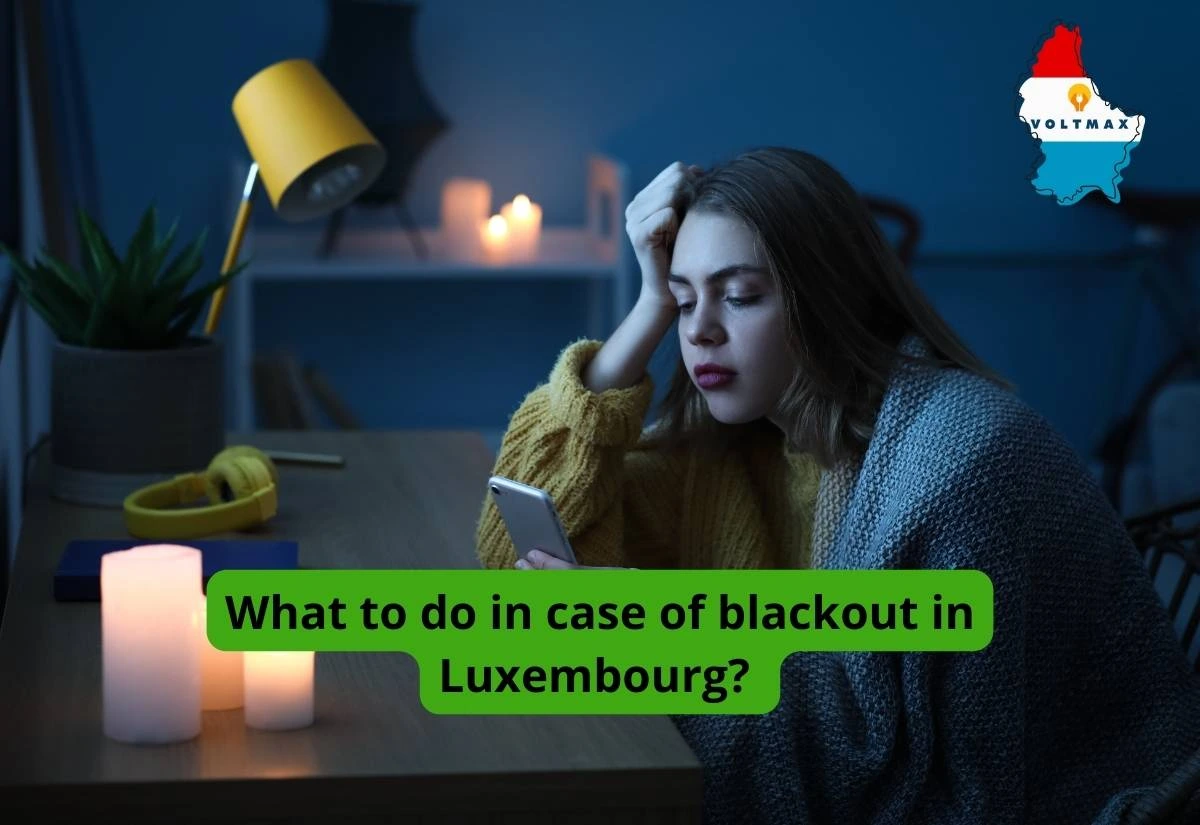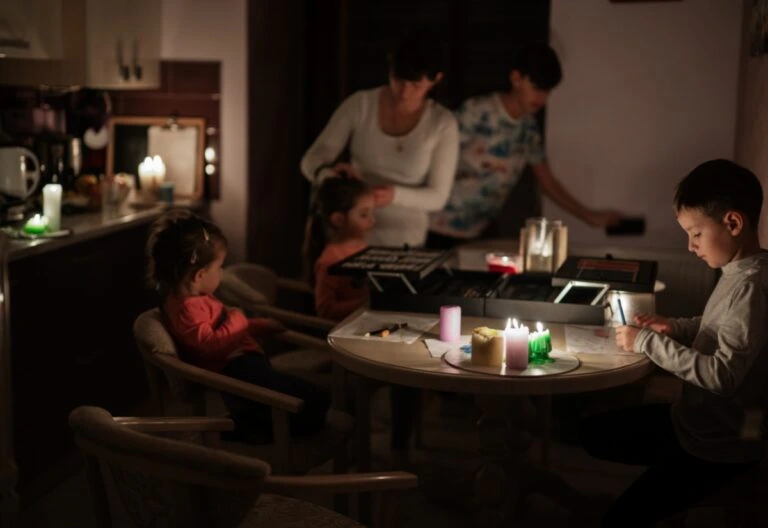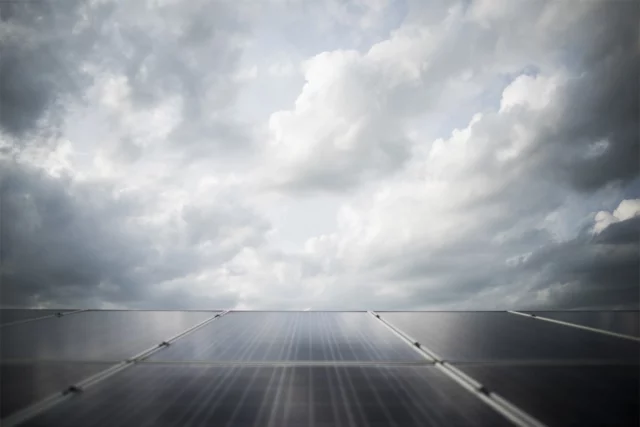
Table of contents
ToggleCould a Blackout Happen Here?
When large parts of Spain and Portugal were plunged into darkness during recent massive power outage, the shockwaves of the event were felt far beyond the Iberian Peninsula. Entire cities went without electricity for up to 20 hours, paralyzing transport, communication systems, healthcare, and daily life. The chaos prompted an urgent question across Europe: could this happen elsewhere? In Luxembourg, that question struck a particular nerve – and although a nationwide blackout is considered unlikely by experts, the event served as a critical wake-up call.
Luxembourg’s Energy and Economy Minister, Lex Delles, has publicly stated that due to the country’s robust interconnections with the German and Belgian electricity grids, the risk of a complete power outage remains low. The grid operator, Creos, supports this view, citing advanced systems to reroute energy and stabilize the network. However, Luxembourg’s deep reliance on external electricity sources also reveals a vulnerability: if something disrupts the broader European grid, as was the case in Spain and Portugal, even the Grand Duchy could find itself momentarily in the dark.
In fact, this scenario is not purely hypothetical. Many residents still remember the blackout of 2 September 2004, when Luxembourg experienced a sudden, unexpected power loss due to a high-voltage fault in Germany. Though the interruption lasted just under 40 minutes, it was enough to halt industrial production, freeze communications, and create traffic chaos – proof that even short-term outages can have disproportionately large consequences in a highly connected and digitized country.
Today, with global energy systems facing increasing pressure from climate change, cyber threats, aging infrastructure, and geopolitical tensions, such as the war in Ukraine, Luxembourg is not immune to risk. The European Commission has urged member states to enhance their resilience, and the High Commission for National Protection (HCPN) in Luxembourg has responded by developing robust emergency protocols, awareness campaigns, and even a recommended 72-hour survival kit for all households.
Lessons from the Iberian Peninsula: A Wake-Up Call
The blackout that struck in the Iberian Peninsula on April 28, 2025, was not just a technical failure, it was a powerful reminder of how fragile modern life can be without electricity. Millions of residents across Spain, Portugal, southern France, and even parts of Andorra suddenly found themselves without power, internet, mobile networks, or public transport. In cities like Madrid and Lisbon, subway systems halted, ATMs failed, restaurants turned away customers without cash, and homes went dark. For some, the outage lasted only a few hours, but in harder-hit areas, the disruption stretched well into the following day.
One of the most concerning parts was the total communication breakdown. Messaging apps, websites, and news platforms became inaccessible. With mobile networks down, the only reliable source of updates for some was an old-fashioned battery-powered radio – if they were lucky enough to have one. The event has sparked renewed interest in analog technology, survival supplies, and community-based communication systems.
What happened on the Iberian Peninsula is a powerful reminder of how quickly life can be turned upside down – even in countries with modern infrastructure and advanced technology. Within minutes, busy cities fell silent, daily routines were disrupted, and millions of people were left without light, heat, or a way to communicate. It didn’t take long for confusion and frustration to set in, as people realized just how much they depend on electricity for almost everything.
Here in Luxembourg, we are fortunate to have a strong and well-connected power grid, with backup links to neighboring countries like Germany and Belgium. Experts say that a full blackout is unlikely, but unlikely doesn’t mean impossible. What happened in Spain and Portugal shows that things can change fast, and being prepared is always better than being caught off guard.
Luxembourg’s Emergency Strategy Explained
While a nationwide power outage in Luxembourg is considered unlikely, the government isn’t taking any chances. In response to increasing concerns about energy security across Europe, the High Commission for National Protection (HCPN) has developed a comprehensive emergency strategy to help the country respond swiftly and effectively if the lights do go out.
- In case of a blackout, emergency messages will be broadcast via national radio stations – RTL and Radio 100.7 – in five languages: Luxembourgish, German, French, English, and Portuguese. Since mobile networks and the internet might fail, residents are urged to have a battery-powered or car radio.
- Hospitals and other essential services must be equipped to function independently for at least 72 hours, supported by backup power systems. Some may require longer autonomy depending on their role.
- At the household level, the HCPN is finalizing guidelines for a 72-hour survival kit, including items like bottled water, non-perishable food, flashlights, batteries, power banks, and key documents. Similar kits are already recommended in Belgium.
- The government also maintains infocrise.lu, a dedicated platform for official guidance during emergencies. Residents are encouraged to check it in advance and stay informed.
Luxembourg may be small, but its approach to risk management is serious and thorough. By combining modern infrastructure, regional cooperation, and community-level awareness, the country aims to ensure that if a blackout does happen, it won’t lead to chaos — but to calm, coordinated action.
What Should Be in Your 72-Hour Survival Kit
When the power goes out, even for a few hours, daily life can become unexpectedly difficult. That’s why the HCPN, following EU recommendations, encourages every household in Luxembourg to prepare a 72-hour emergency survival kit. This kit is designed to help you stay safe, healthy, and informed for at least three days without external support.
At the top of the list are drinking water and non-perishable food. Aim for at least two liters of water per person per day, and stock up on easy-to-eat items like canned goods, energy bars, and dried fruit.
Communication is critical during a blackout, so your kit should include a battery-powered or hand-crank radio, as well as extra batteries or a solar power bank to keep phones or flashlights working. Having power banks ready can make a big difference.
Lighting is another priority. Include LED flashlights or headlamps for every household member, and avoid candles, if that’s possible, due to fire risks. A basic first aid kit, essential medications, and a copy of important documents (such as ID, insurance papers, and medical records) should also be included.
Other helpful items include matches or a lighter, hygiene supplies, cash in small denominations, warm clothing, and if needed, baby care or pet supplies.
Preparedness brings peace of mind. You may never need the full kit but having it ready ensures you won’t be caught off guard when time and information are limited.
Helping Others: Checking on Vulnerable Neighbours
During a blackout, community support can be just as important as flashlights and batteries. While some people may have the resources and mobility to adapt quickly, others, particularly the elderly, people with disabilities, or those living alone, may face serious challenges. That’s why one of the key recommendations from the HCPN is simple but powerful: check in on your neighbours.
If you know someone nearby who might struggle in a crisis, take a moment to see if they have everything they need – drinking water, food, warmth, light, and a way to receive updates. A quick visit or a phone call (if networks are still working) can make a huge difference. If you have extra supplies, consider sharing. A charged power bank, spare batteries, or even just a warm blanket can provide comfort and security in a stressful time.
During the blackout in Spain and Portugal, many people spoke about how their neighbours came together – sharing radios, cooking food, and supporting each other when public systems were down. That sense of solidarity turned an isolating experience into something more manageable, even hopeful.

6. What Not to Do: Common Mistakes During a Blackout
In stressful situations like a blackout, it’s easy to make quick decisions that may seem helpful in the moment but can actually be dangerous. That’s why knowing what not to do is just as important as knowing what to prepare.
One of the biggest risks is using open flames. While candles may seem like a go-to lighting solution, they pose a serious fire hazard, especially in homes with children or pets. If you must use them, never leave them unattended and keep them far from curtains or flammable surfaces. LED flashlights or headlamps are a far safer option.
Another common mistake is trying to heat your home with gas stoves or ovens. This can quickly lead to carbon monoxide poisoning, which is odorless, invisible, and potentially deadly. The same goes for indoor use of generators, barbecues, or camping stoves – always operate these – outdoors and at least 20 feet away from windows and doors.
When power returns, the sudden surge of electricity can damage appliances. That’s why it’s smart to unplug large devices like refrigerators, freezers, heat pumps, and chargers during the blackout. Leave one light switched on so you’ll know when power is restored.
And finally, avoid unnecessary phone use. Save battery life for emergencies and use your device sparingly. Text messages or short calls are more reliable than data-heavy apps during network disruptions.
7. Conclusion: Stay Ready, Stay Resilient
Blackouts may be rare in Luxembourg, but the events in Spain and Portugal show how suddenly they can strike – and how disruptive they can be. The key message is clear: preparedness matters. Whether it’s keeping a simple survival kit at home, knowing how to get reliable information or to check on neighbours who may need support – small actions today can make a big difference tomorrow. By staying calm, informed, and connected as a community, Luxembourg can turn potential crisis into coordinated resilience – proving that even in the dark, we don’t have to be powerless.
8. Energy Independence Starts at Home: Solar Power with Backup
One of the most effective ways to prepare for a blackout is to reduce your dependence on the public grid. Today, more and more households in Luxembourg are turning to solar panels combined with a home battery system and an emergency power module. This setup allows you to store the electricity produced during sunny days and use it later – even during a power outage.
If the grid goes down, the stored energy in your battery doesn’t go to waste. The emergency module activates automatically, powering your most essential home devices – like lights, the refrigerator, medical equipment, or a router – ensuring comfort and safety even when the rest of the neighborhood goes dark.
Installing a photovoltaic system with energy storage is not just an investment in sustainability, but also in security and peace of mind. It’s a smart way to stay ready for the unexpected while lowering your electricity bills in the long run.







